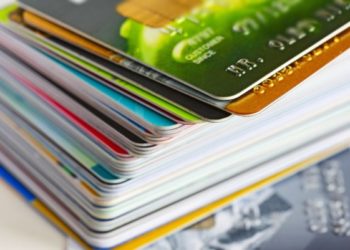One thing almost everyone will agree with is that saving money is not an easy task. It is true that we are faced with numerous obligations daily that make it difficult for us to make that all-important decision to achieve our financial goals. We have loans to pay, medical bills, car emergencies, rent, food, etc. All these needs have a huge impact on our monthly income and our ability to save money.
Most times, adhering to a savings plan becomes a difficult task to accomplish, and a lot of people tend to get discouraged along the way. Sometimes, you already have a financial goal in mind, but you don’t even know where to start. There are many things involved in managing your finances, and it can be confusing to find a starting point. It doesn’t have to be this way.
If you are confused, overwhelmed, or lost on your journey towards achieving your financial goals, you do not need to worry, just take a deep breath. You can make progress towards achieving your goals in tiny, manageable steps.
If you are focused on reaching your financial goals, you’ll need to learn how to save money and cut your expenses. The more you can save, the more quickly you will be able to reach your goals, whether you want to pay off your debt, buy your first house, or build your investment portfolio.
When you begin to analyze all the lifestyle changes you need to make in order to achieve your goals, you’ll realize that it is not as difficult as you previously imagined. It is actually not a tough task to meet your financial goals and stop living from paycheck to paycheck. With a little bit of discipline and patience, you can become the master of your personal finances, instead of being a slave to them.
Luckily, there are easy financial hacks you can use to start keeping up with your finances and cutting back on unreasonable expenses. With careful planning and a little bit of determination, you can use these 10 personal finance hacks to reach your goals quickly and effectively.
Here are 10 lifestyle decisions you need to make in order to bring your financial goals to reality & improve the health of your financial life:
1: Pay Yourself First
A lot of people only save when they have taken care of all their expenses, and most of the time, there is nothing left to save. We often tend to think about saving last; this shouldn’t be the case. We should always think about saving first, we should pay ourselves first.
The first thing you should do when you get your income is to take out a pre-determined amount out of it and send it to your savings account. Then, you can plan your expenses with the amount that is remaining.
How can you achieve this? Before you start spending your income, decide what your goal is, and set aside a pre-determined amount. Once you have set your goal, move the money to a separate savings account.
If you desire to live the life of your dreams and also live in abundance, you have to think about saving first – pay yourself first. I’m sure you would not want to spend the rest of your life going from paycheck to paycheck until you are old.
Make sure the account you choose for your savings is not easily accessible so that it would be difficult for you to spend the money. Then, you can manage what is left and take your mind off the initial money you saved.
2: Spend Less Than You Earn
Do not spend more than you earn. This is supposed to be a simple personal financial hack, but it is surprising to see that a lot of people try to live above their income. People spend a lot of money on groceries, TV subscriptions, car loan, rent, designer clothes, expensive gadgets, etc.
They are always looking for money to pay-off one expense or another, and as a result, they are always living from paycheck to paycheck. If you follow this simple rule, you can liberate yourself from the many financial traps that a lot of people fall into.
3: Be Careful With Credit Cards
Credit cards are a big virus of the 21st century and a threat to the financial health of a lot of people. Why would you spend money you don’t have to buy things you can’t afford? There is never, ever a good reason to use credit cards, unless you repay them in full every month.
Don’t use it if there are no obvious financial advantages. Credit cards make spending money more abstract; this is because you are not holding the cash physically.
Set reminders every week to pay off your credit card balance. This way, you are able to pay off your credit card debts before they accumulate and become a financial burden to you. Also, you’ll know how much you have left in your bank account, which is a good thing.
Limit the number of your credit cards. Yes, it can be useful to have different cards for different purposes. However, unless you have the time and memory to remember all the different perks, it’s best to stick with one or two.
4: Start Investing Wisely
If you want to live the life of your dreams, investing your savings as soon as you have any will help you to get there much faster.
It is good to save money, but when you use that money to make more money, it is absolutely incredible. Saving money alone cannot take you too far. However, when you save and invest wisely, the results can be amazing for your financial life. So, you need to start thinking about making smart investments.
Investments don’t come naturally to most of us; therefore, rather than investing in any kind of business venture, it is wise to consult a financial advisor.
Talk to a financial expert about your financial goals and savings, and then seek advice for the best investment instrument you can use to achieve your goals. You’ll get greater returns investing your cash than just keeping it in a savings account.
5: Pay Off Your Bad And High-Interest Debt First
This will help to reduce the interest and overall amount you are owing. Make sure to pay off the debt with the highest interest rates first. Once they’re paid off, focus on the next-highest rates. Pay off high-interest loans first, so that you’re not paying more than necessary in the long run.
If you have a debt to pay, make sure you focus on paying off your debt first. You should aim to settle your credit card debts as soon as possible. Credit card debts usually come with high-interest rates which can make it difficult for you to achieve your financial goals. Make weekly instead of monthly payments to clear out your debts.
6: Build An Emergency Fund
What would happen if you lost your job tomorrow and your earnings stop? What if you had an accident and couldn’t work for a few months? If you want to have peace of mind, and not feel financial pressure when you find yourself in unforeseen circumstances, make sure you set aside your own emergency fund.
This is a very effective practice advocated by the majority of financial gurus. The idea is simple: set aside some cash for a rainy day, because bad things happen when you least expect them. It might be an accident, a job loss — or maybe your car breaks down.
It is good to have an emergency fund account that can take care of your expenses for at least six months to one year after something bad happens, like a job loss or an accident. This would give you some security and time to plan well for your next opportunity.
7: Set Financial Goals
Saving just for saving’s sake is boring! I’ve always been a good saver and seeing my account grow every month has always been a good enough reason to save, but it wasn’t until I started to set goals for myself that I found a real purpose and a strong motivation.
Many people dream of what they want to achieve, but few actually set concrete goals. In the world of financial goals, there is nothing more important than having clearly defined, measurable, time-sensitive goals.
So what is your financial goal? Perhaps you want to pay off your credit card debt or save money for a house. Maybe your goal is to save for your child’s education or for your own retirement.
Whatever your goal is, big or small, make sure you have one. It will help you track your progress and give you something to strive for.
8: Stay out of Debt
Incurring debt is not a good financial habit; once you get into it, it’s hard to get out of it. You want a luxury car, a new designer bag, an expensive vacation. The question is, can you afford them? Some people will resort to taking loans in order to satisfy their desires. This is a very bad financial decision.
If you can’t afford it, you can’t have it! It’s as simple as that. If you want it badly, work harder for it! Get a new job that pays more, come up with a side hustle to make some extra money or save a bit more every month!
Purchasing a flashy car on loan, racking up lots of student loan debt, and using credit cards for things you should save for or things you cannot afford, is a recipe for disaster.
9: Have A Monthly Savings Amount
Transferring a particular amount of money to a savings account at the same time you pay your other monthly bills helps ensure that you are regularly and intentionally saving money for the future. You do not have to wait till you finish all your expenses, and then save the little money that remains. Most of the time, you’ll find out that there is nothing left to save.
What you can do is, set up an automatic transfer of a particular amount to your savings account every month. When your monthly paycheck comes in, a certain amount automatically gets transferred to your savings account. This would greatly help in building your financial growth and future.
10: Use Cash Instead
Instead of charging your expenses to your credit cards or debit cards, use cash for non-bill spending such as eating out, gas, groceries. Spending cash makes the spending more real, and there’s an added advantage of knowing when you’re out of cash.
Using credit cards and debits cards in the everyday world is often more convenient and simpler than pulling out the cash and counting out the change. However, this convenience comes at a cost. If you’ve ever found yourself in credit card debt, you know all too well the dangers of swiping without thinking.
Whenever possible, visit your bank and pull out the money you need for the month in cash. Then use the cash to pay for all your expenses. This way, you are able to see exactly how much money you are spending. It will also make you more cautious in buying things you do not really need.
Many people do not stop to think about the money they are spending when they swipe a debit or credit card, and this can cause them to spend even more.
In addition to keeping you more aware of the money you are spending, using cash also helps you guide against overspending. But keep in mind that in order for this to work, you should not use your debit or credit cards. You may even want to leave your credit cards at home when you’re about to go to the supermarket.
Final Thoughts
Developing short-term or long-term financial goals is the best way to achieve your dreams. Remember the old saying: If you fail to plan, you plan to fail.
Your ability to take bold financial decisions is the only way to guarantee that you’ll meet your financial goals and objectives. Once you’re on track towards reaching your financial target, don’t go back to your old ways, be disciplined, be focused, keep reminding yourself of your goals and the need for you to stay on track. Make sure you never get to a point where you’ll have to break any of your rules.
Start working on these simple financial life hacks today, and develop smart financial habits that will keep you prosperous for the future.
Take control of your finances and become financially free. Apply these life hacks and watch your money grow.
Are you ready to finally take control of your financial life? Follow these financial hacks, and you’ll be on track to start living the life of your dreams!













Those credit cards will get you if you’re not careful. I’ve already had to file bankruptcy once because of credit cards. Got to be careful! For now I just avoid all credit cards whatosever.
Budgeting out your shopping is a good idea. But, one thing you may want to consider is loyalty platforms. In this way you save money on every purchase. You can use those savings to invest or do whatever you need to do.
Maybe consider doing your own taxes instead of hiring somebody. Not only do you avoid having to pay a tax preparer or accountant you will learn a lot about strategic tax planning. Also, if you are a homeowner you should try to use any tax credits that are available for improvements to your home that increase energy efficiency.